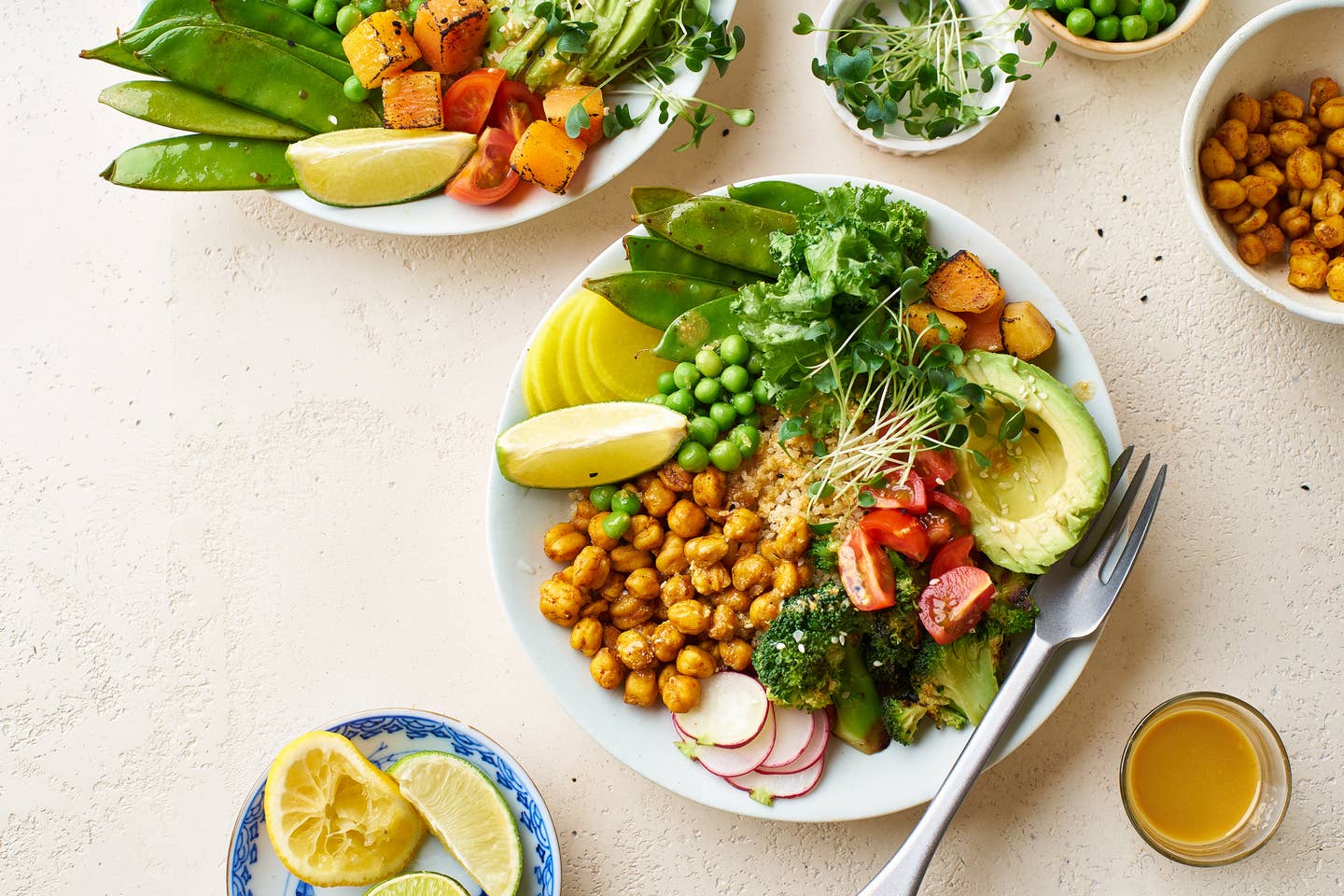
The 7 Nutrients Men Need While On a Plant-Based Diet
Plant-based diets are soaring in popularity among men who are looking to lead a healthier lifestyle, lose weight or maximum muscle gains. Although plant-based eating is equally beneficial regardless of gender or age, there are certain nutrients that men need to pay particular attention to when consuming only plants. We spoke with two Registered Dietitians, Danielle Omar, MS, RD, Integrative Dietitian at Foodconfidence.com and Jessica Spiro, RD, owner of Jessica Spiro Nutrition, to discuss the nutrients that men should pay attention to on a plant-based diet. Here’s what they had to say.
1. Vitamin B12
Vitamin B12 is important for men and women alike. “It’s a vital nutrient needed for everything from nervous system health, to bone and blood health,” says Omar. For guys who workout or just want to feel good throughout the day (who doesn’t?), Vitamin B12 helps the body convert food into glucose to provide energy for daily activities.mThe Recommended Dietary Allowance (RDA) is 2.4 mcg of Vitamin B12 per day. Since this B vitamin is more abundant in meat than plant-based foods, men need to make sure they’re eating enough. “Your best bet is to eat foods that are supplemented with B12, like nutritional yeast, plant milks, soy products and cereals,” says Omar.
2. Calcium
Although women are more prone to bone issues, like osteoporosis, men still need to consider bone-building minerals, like calcium. This is especially true for men who engage in high impact exercise or lift heavy weights, both of which put pressure on the muscles and bones. The RDA for calcium is 1,000 mg (1,200 mg for men over age 50). Dairy foods are usually synonymous with calcium, but there are also many plant-based calcium options, like edamame, bok choy, kale, mustard greens, turnip greens, watercress, broccoli, chickpeas, calcium-set tofu, almonds and fortified plant milks.
One caveat: Men with heart disease should talk with their doctors about calcium before taking any supplement. A study from the National Institutes of Health found that men who took calcium supplements had an increased risk of a heart attack, stroke or other cardiovascular diseases. But other studies suggest that both men and women who take calcium supplements have a higher risk of heart disease.
3. Vitamin D
“Vitamin D helps with the absorption of calcium and aids in immune function, mood, memory and muscle recovery,” says Omar. For men, Vitamin D deficiencies have been linked to an increase in incidences of prostate cancer. Adults should aim for 600 IU a day, and the best way to get enough Vitamin D is through sunlight. However, since exposure to sunlight, weather and skin tones vary, it’s difficult to get enough Vitamin D through this method alone. “Wild mushrooms are a great source of Vitamin D2 because they are exposed to sunlight,” says Omar. In addition, breakfast foods like oats, plant-based milk and orange juice, are fortified with Vitamin D.
4. Zinc
“Zinc is a trace mineral that is associated with a well functioning immune system as well as male fertility,” says Spiro. She adds that a zinc deficiency has been associated with poor sperm quality and lower testosterone levels. Omar points out that plant-based sources of zinc are usually less digestible because they also contain phytates, a type of antioxidant that inhibits zinc absorption. “It’s recommended that plant-based eaters consume 1.5 times more than the recommended daily amount [of zinc],” Omar adds. The RDA for Zinc is 8-11 mg, and good sources of zinc include sprouted grain bread, whole grains, tofu, legumes, nuts and seeds. “Soaking and sprouting grains and nuts helps to reduce phytates,” adds Omar.
5. Iron
“While men do not need as much iron as women, it is still important to make sure you are getting adequate amounts to avoid fatigue and other health issues,” says Spiro. Since iron is primarily found in meat-based foods, plant-based eaters need to make sure they include it in their diet. Plant-based iron is abundant in leafy greens, oats, chickpeas, tofu and lentils. “Pair your iron sources with foods high in vitamin C to increase absorption,” says Spiro.
6. Protein
“There is still a misconception that you need to eat meat to get adequate amounts of protein,” says Spiro. “However, not only do plant-based sources of protein (e.g. legumes, whole grains, soy products, and nuts and seeds) easily meet protein needs, increased intake of non-animal sources of protein [from fiber-rich foods] are associated with lower rates of heart disease and cancer,” she adds.
7. Fiber
Heart disease is the #1 killer of men in the United States. That said, research suggests that a high intake of fiber-rich foods may reduce the risk of developing and dying from heart disease. Luckily, almost all plant-based whole foods are rich in fiber, making it easy for men to hit the recommended 38 grams per day. Eat plenty of fruits and vegetables, especially leafy greens and cruciferous vegetables, beans, legumes, whole grains and nuts to meet your fiber needs.
More From The Beet






